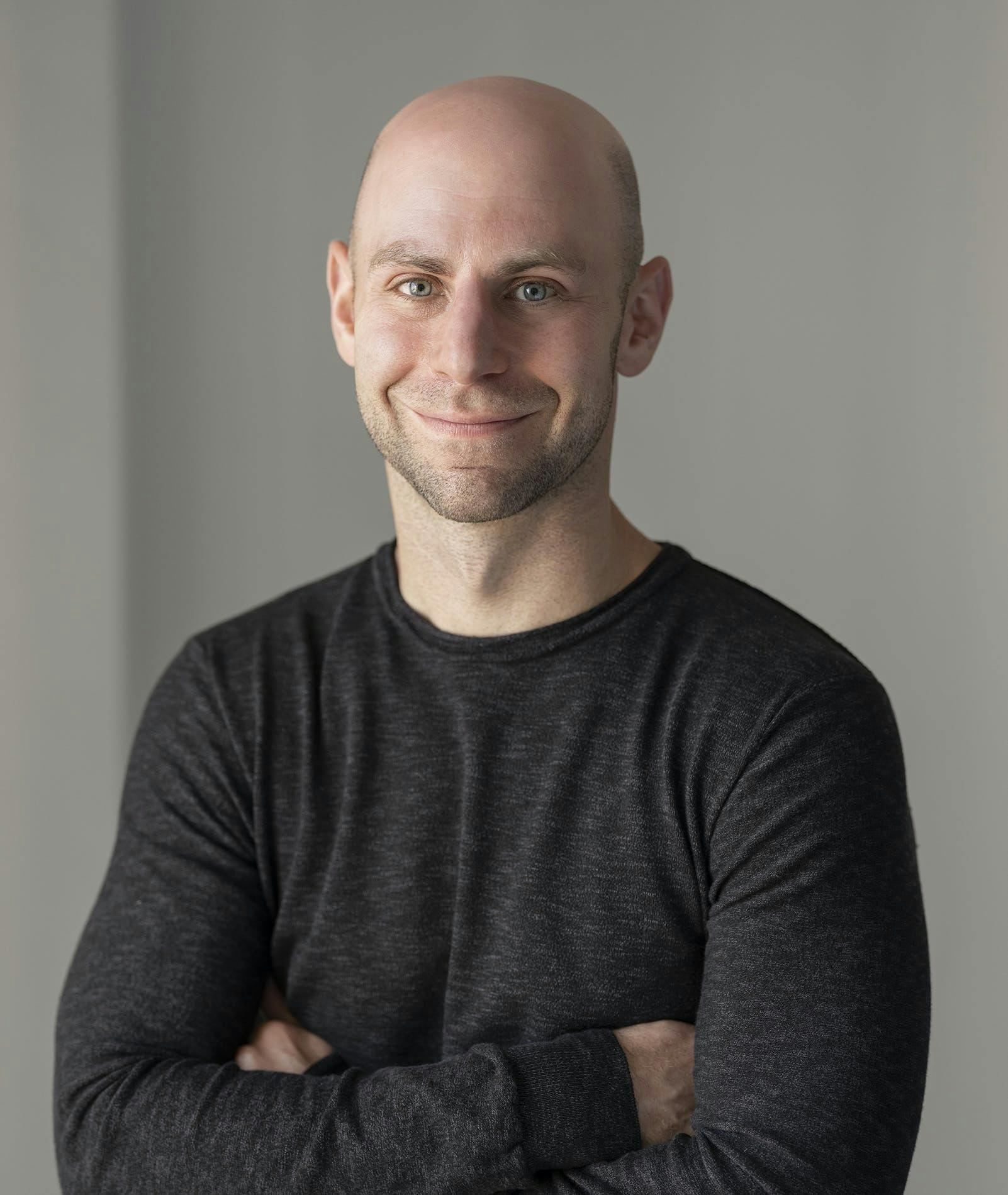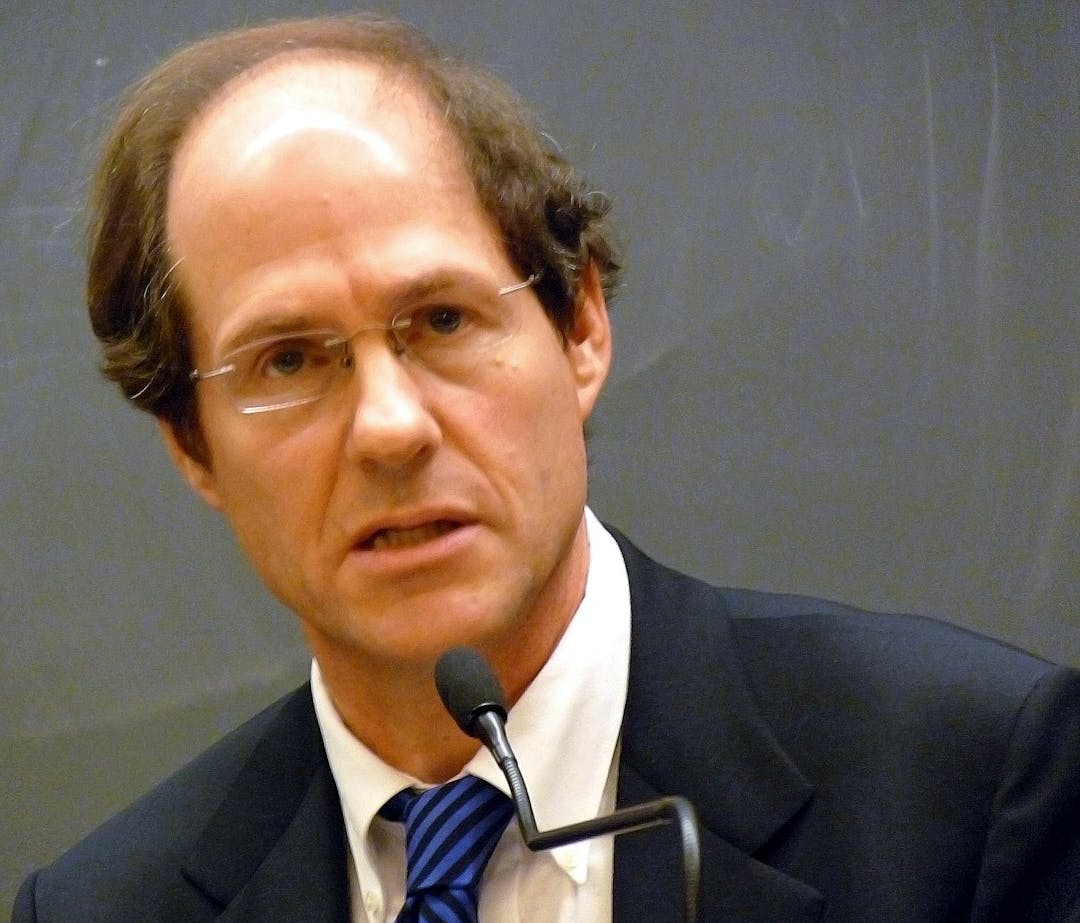Adam Grant
The organizational psychologist who encourages us to give more and act like an original
Intro
Adam Grant is a renowned organizational psychologist and best-sellling author. He is also the Saul P. Steinberg Professor of Management at the Wharton School of the University of Pennsylvania.
Grant’s work seeks to understand human motivation and the search for meaning in life. He is the author of 4 New York Times bestselling books - Give and Take, Originals, Option B, and Power Moves, all of which have sold millions of copies, and resonated with readers around the world. Grant is also well-known for his TED talks, especially his 2016 talk on ‘The Surprising Habits of Original Thinkers’ which has been viewed by over 7.5 million people. He is the host of WorkLife - a TED original podcast, and frequently contributes to discussions of work psychology through his op-ed pieces in the New York Times. Grant was recognized by Forbes as one of the world’s ‘10 most influential management thinkers’ ,and made the list of Fortune’s ‘40 under 40’. He’s also been Wharton’s top-rated professor for 7 years in a row.1
The greatest shapers don’t stop at introducing originality into the world. They create cultures that unleash originality in others.2
On their shoulders
For millennia, great thinkers and scholars have been working to understand the quirks of the human mind. Today, we’re privileged to put their insights to work, helping organizations to reduce bias and create better outcomes.
Ideas
“People will say, look, you have to practice what you preach. I actually think leaders should be doing the reverse, which is to say, “I am only gonna preach what I already practice.”[8]
Why Giving Pays Off
Much of Grant’s work explores how our interactions with others influence the level of success and general sense of fulfillment we enjoy. His studies have looked at how tweaks in job or task designs that make us more conscious of how our behaviour impacts other people, lead to better results.3 He also argues that people who ‘give’ more of their time or energy in negotiation and collaboration tend to reap greater rewards. In his book ‘Give and Take: A Revolutionary Approach’ Grant creates a framework of ‘takers’, ‘matchers’, and ‘givers’.4 He points to several examples of when ‘giving’ paid off more for people in the long-run, especially when it comes to networking and sharing connections. One case is that of George Meyer, the Emmy Award-winning writer for The Simpsons. Meyer is believed to have contributed to over 300 episodes of The Simpsons, however he rarely demanded recognition and as a result he is only credited for 12 episodes. Grant argues that what mattered most to Meyer was seeing the show succeed, rather than pursuing his own personal recognition. Grant’s ideas in this domain have been adopted by some of the world’s largest companies, many of whom have aligned their reward and compensation strategies to encourage workers to be more collaborative, and more like ‘givers’.
“Being a giver is not good for a 100-yard dash, but it’s valuable in a marathon.” [4]
How To Be Original
Grant’s second book ‘Originals: How Non-Conformists Move the World’ has sold over 2 million copies, and his TED talk on the same topic has been watched over 7.5 million times. So what’s so original about his theory? Grant argues that some of the world’s most original thinkers share a few of the same, somewhat surprising habits. In his book he draws on numerous case studies and suggests tools we can use to develop innovative ideas, communicate our ideas and manage fears and doubts, and ways leaders can nurture cultures that promote originality. Some of his most interesting observations include - the benefits of procrastination (did you know that Da Vinci spent 16 years painting the Mona Lisa on-and-off?), how most ‘originals’ just improve ideas that already exist (just look at Facebook), and why the best way to overcome groupthink is to build teams with people who have different opinions, but are willing to work together to achieve a common goal (Grant points to an example in the Navy where fresh ideas from lower ranks were encouraged and led to the introduction of 3D printing for emergency spare parts at sea).2 Grant’s work on originality has been endorsed by some of the world’s most prolific business leaders and writers, including Richard Branson, Arianna Huffington, Daniel Kahneman and Malcom Gladwell.
Biography
“Highly successful people have three things in common: motivation, ability, and opportunity.”[4]
Adam Grant is a renowned organizational psychologist and author, and the current Saul P. Steinberg Professor of Management at the Wharton School of the University of Pennsylvania. He was born in 1981, and raised in the suburbs of Detroit. Grant received his B.A from Harvard University, followed by an M.S. and Ph.D from the University of Michigan. He finished his Ph. D in less than three years and was tenured at the age of 28, making him the youngest professor in history to receive tenure at the Wharton School.5
"In the deepest sense of the word, a friend is someone who sees more potential in you than you see in yourself, someone who helps you become the best version of yourself.”[2]
Grant started his academic career as an Assistant Professor of Organizational Behavior at the University of North Carolina at Chapel Hill. He moved to the Wharton school in 2009, working as an Associate Professor and frequently publishing in academic journals in psychology, management and organizational behavior. His first book ‘Give and Take: A Revolutionary Approach’ was published in 2013, presenting a view of people as either ‘takers’, ‘matchers’, and ‘givers’, and arguing that ‘givers’ tend to be the most successful in terms of personal fulfillment.
“Excellence is the product of high aspirations and low ego.”[2]
The following year, ‘Originals: How Non-Conformists Move the World’ was published, exploring what drives original thinking and subsequent business success. ‘Originals’ attracted much attention in the business world, and Grant quickly became a much sought-after consultant for the world’s largest companies, including Google and Facebook. Grant co-authored his third book with Sheryl Sandberg, COO of Facebook, called Option B: Facing Adversity, Building Resilience, and Finding Joy. He is a board member of Sandberg’s foundation ‘LeanIn.Org’ since 2015, and supports a range of charitable causes including the Make A Wish Foundation for which he has raised over $325,000 through experiments conducted with his students at Wharton.6
“Argue like you’re right and listen like you’re wrong.”[2]
Grant is due to publish his 4th book ‘Think Again: The Power of Knowing What You Don't Know’ in the Spring of 2021. In addition to teaching, researching, and writing, Grant hosts the chart-topping podcast ‘WorkLife with Adam Grant: A TED original podcast’ which explores the latest developments in organizational psychology aimed at ‘making work not suck’. He is also an angel investor and the founder of Givitas, a software that helps organizations implement the ideas from his book Give and Take. His work has been highly influential, especially in the world of big business and technology, and companies continue to adapt his principles in their work cultures and practices.
“The most meaningful way to succeed is to help others succeed”[4]
Additional Content
Papers
- Menges, J. I., Tussing, D. V., Wihler, A., & Grant, A. M. (2017). When job performance is all relative: How family motivation energizes effort and compensates for intrinsic motivation. Academy of Management Journal, 60(2), 695-719.
- Fragale, A., & Grant, A. M. (2015). Busy brains, boasters’ gains: Self-promotion effectiveness depends on audiences’ cognitive resources. Journal of Experimental Social Psychology, 58: 63-76.
- Grant, A. M. (2012). Leading with meaning: Beneficiary contact, prosocial impact, and the performance effects of transformational leadership. Academy of management journal, 55(2), 458-476.
- Grant, A. M., & Berry, J. W. (2011). The necessity of others is the mother of invention: Intrinsic and prosocial motivations, perspective taking, and creativity. Academy of management journal, 54(1), 73-96.
- Grant, A. M., & Ashford, S. J. (2008). The dynamics of proactivity at work. Research in organizational behavior, 28, 3-34.
- Grant, A. M. (2007). Relational job design and the motivation to make a prosocial difference. Academy of management review, 32(2), 393-417.
Lectures
- TED (2016) The surprising habits of original thinkers | Adam Grant
- TED (2017) Are you a giver or a taker? | Adam Grant
- Google (2013) Give and Take | Adam Grant | Talks at Google Talks at Google
Interviews
- Tom Bilyeu. (2020). Legendary Psychologist Adam Grant on Why Leadership is All About Humility, Integrity and Adaptation Impact Theory
- Goldman Sachs. (2018). Adam Grant: The Psychology of Resilience. Talks at GS
- Business Insider. (2019). Adam Grant Reveals What Most Leaders Get Wrong & Simple Things All Execs Should Try | Davos 2019
Articles
- CNBC. (2018). Why the most innovative people don’t use brainstorming meetings
- Philly Mag. (2018). Adam Grant Is (Not) Superman
References
- https://faculty.wharton.upenn.edu/wp-content/uploads/2016/02/AdamGrantCV_18.pdf
- Grant, A. M. (2016). Originals: How non-conformists move the world. Penguin.
- Grant, A. M. (2007). Relational job design and the motivation to make a prosocial difference. Academy of management review, 32(2), 393-417.
- Grant, A. M. (2013). Give and take: A revolutionary approach to success. Penguin.
- https://www.phillymag.com/business/2018/10/27/adam-grant-wharton-books-business/
- https://www.adamgrant.net/about/biography/
About the Author
The Decision Lab
The Decision Lab is a Canadian think-tank dedicated to democratizing behavioral science through research and analysis. We apply behavioral science to create social good in the public and private sectors.





